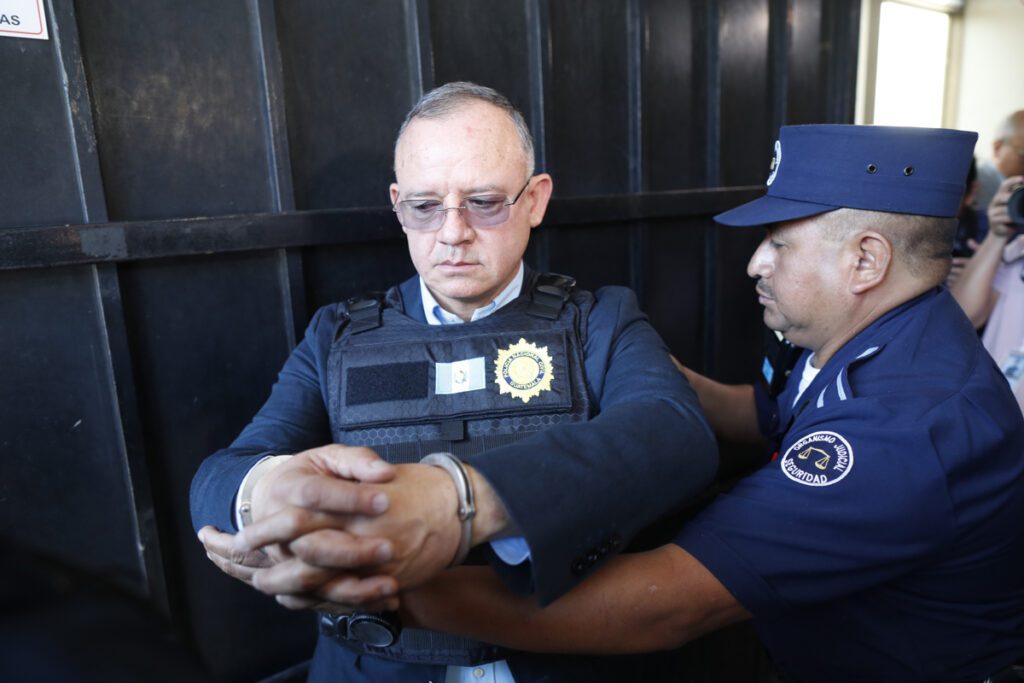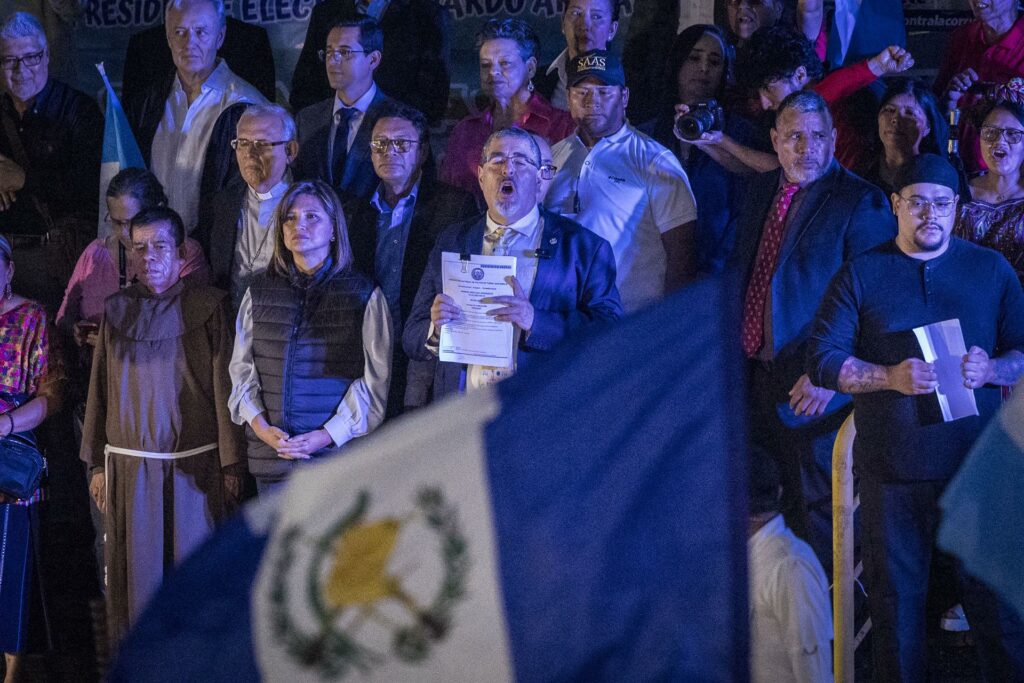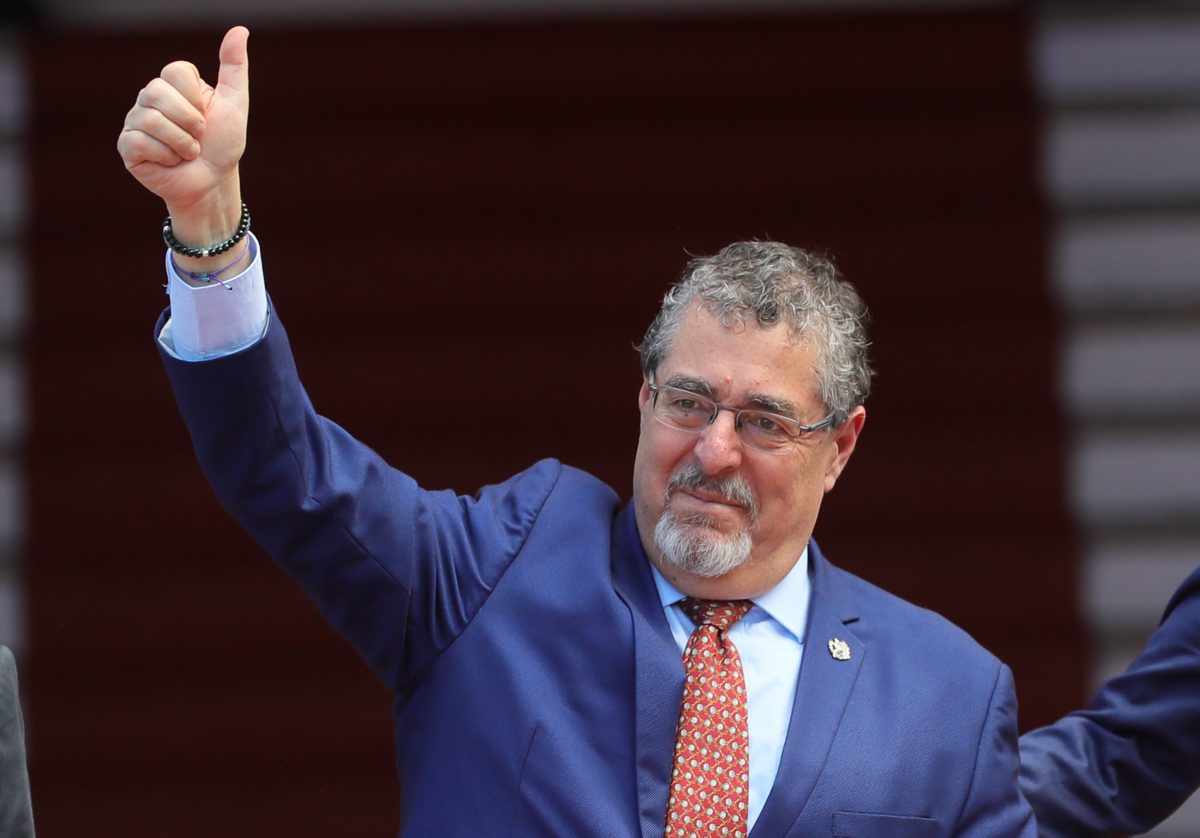A few hours before the inauguration, at least four events are keeping the Guatemalan society and the political and social groups of Central America on edge.
Karin Herrera has had to present a legal recourse to make sure that she will take office, the Public Prosecutor’s Office has captured a former Minister of the Interior and four magistrates of the Supreme Electoral Tribunal (TSE) certifying the validity of the elections in which Arévalo and Herrera were the winners.
The legal team of Vice President-elect Karin Herrera has filed a legal action before the highest court of the country, the Constitutional Court (CC).
The purpose is to prevent the Public Prosecutor’s Office (MP), led by Attorney General Consuelo Porras, from doing anything to disrupt the swearing-in ceremony. This is a preventive injunction, “in view of the possibility of an illegal arrest warrant against her, due to the fact that she has official impunity”, confirmed the lawyers.
This appeal arises from the suspicion that the Prosecutor’s Office could have requested the arrest warrant for Karin Herrera, despite the fact that she has official impunity. The MP did not deny such information, as they usually do in their social media, labeling some publications that are not to their liking as “false”. Instead, they responded: “The confirmation of such information is still pending”, increasing concerns.
Suspicions began when it became known that prosecutor Saúl Sánchez, who is in charge of an investigation called “Toma de la Usac, botín político”, related to the closure of the only state university in the country, Universidad de San Carlos de Guatemala (Usac), reportedly held a hearing with judge Víctor Cruz and when it ended, he did not answer whether he requested the arrest warrant against Herrera.
According to the Public Prosecutor’s Office (MP), the link between these criminal proceedings and the vice-president-elect is that she expressed herself on social media in favor of taking over Usac, in order to improve her public image in the eyes of the citizens. They also presented a photograph in which Herrera is seen among a group of people who were on the university campus during the seizure of its facilities.
Because of this, last November 17, the prosecutor’s office filed six requests for pre-trial proceedings, in order to investigate and criminally prosecute Bernardo Arévalo and Karin Herrera, as well as Samuel Pérez, member of the Semilla party, the party that won the presidential elections, and Rául Barrera, elected member of the same political party, as well as Carlos Barrera and Adán Pérez. Also, 27 arrest warrants were issued.
Regarding these pre-trials, they are still under review by the Supreme Court of Justice (CSJ) of Guatemala.
Former Minister of the Interior captured

Another action by the Public Prosecutor’s Office prior to the inauguration is the arrest of former Minister of the Interior Napoleón Barrientos Girón, for not clearing the protests and roadblocks that took place in October 2023 to demand the resignation of Attorney General Consuelo Porras, whom President-elect Bernardo Arévalo accuses of coup attempt.
Barrientos joins those accused by the Public Prosecutor’s Office of Porras and will be brought before a judge, in which the Public Prosecutor’s Office will ask him to face criminal proceedings for breaching of duties and disobedience.
The Public Prosecutor’s Office explained that the investigation “established that Barrientos, as Minister of the Interior, neglected acts proper to his function related to comply and enforce the legal regime related to the maintenance of peace and public order”.
For this purpose, a resolution of the Constitutional Court of October 11, 2023 was used, in which it was ordered to investigate him for not having complied with resolutions of the same court, ordering that the ministry under his charge at that time, should have taken measures to guarantee rights such as freedom of movement, security, as well as the rights of peaceful assembly and demonstration.
The road blockades were criticized by the business sector, that pressured to free the routes, arguing that every day millions of dollars were lost and creating the narrative that they were illegal, because they prevented freedom of movement.
Two agents of the Guatemalan National Civil Police placed a bulletproof vest and shackles on his former superior commander. As he walked to be registered in court, Napoleón Barrientos said that he acted according to the law.
“The corresponding instructions were given to the directorates that had to act, it was done in writing and verbally, but we acted within the framework of the law,” he told reporters.
Attempt to capture TSE magistrates
The Public Prosecutor’s Office confirmed arrest warrants against four magistrates of the Supreme Electoral Tribunal (TSE), for the purchase of the Preliminary Electoral Results Transmission System (Trep), a process about which no further details are known, since the case is confidential.
The criminal prosecution is against Irma Palencia, Mynor Franco, Gabriel Aguilera and Rafael Rojas. In the first case it is for abuse of authority and fraud, and for the other three only for fraud.
The four magistrates are not in Guatemala. They left the country after the plenary of the Congress of the Republic removed their immunity on November 30.
This group of electoral magistrates together with President Blanca Alfaro, the only one in office, validated and certified the results of the general elections of June 20, 2023 and those of the second round on August 20, where the winner was the Movimiento Semilla party.
The Guatemalan Attorney General’s Office is investigating alleged financial anomalies in the purchase of the computer system used in the 2023 elections. It cost 148 million quetzales (US$18.9 million).
The other front against Semilla

The Semilla Movement must fight one more political battle in the Congress of the Republic. This challenge implies ensuring that the 23 representatives elected for the 2024-2028 legislature assume their seats together, instead of independently, since this would diminish the possibilities of oversight.
Although the party is still in force, as it has not been canceled, its legal status is suspended following the order of Judge Fredy Orellana last year. This suspension was declared by the Registry of Citizens, an entity of the Electoral Tribunal. Both Judge Orellana and the prosecutor’s office have recently reminded Congress of Semilla’s legal status.
Additionally, the parliament’s board of directors has included the requirement of the finiquito for taking office in the legislature. The “finiquito” is a certificate issued by the Comptroller General of Accounts, which certifies the absence of pending accounts for the use of public funds.
Finally, there is the situation of Bernardo Arévalo, whose resignation as general secretary of Semilla was rejected by the Registry of Citizens.
This fact places him in a compromising position, since the Electoral and Political Parties Law establishes the incompatibility between the role of general secretary and the performance of a public office or function, such as the one he will assume on January 14 when receiving the presidential sash, if he manages to overcome these obstacles.





